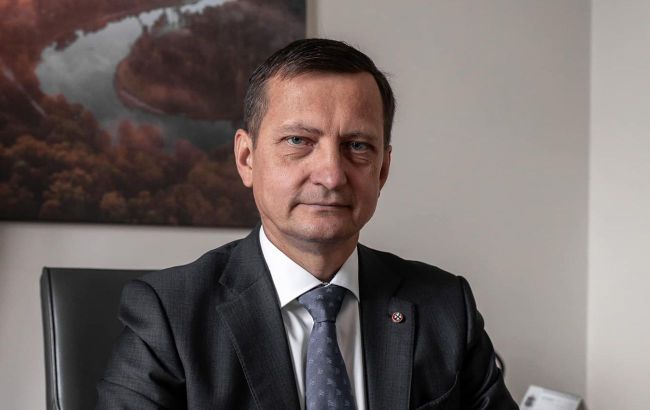Latvia seeks to ban import of Russian agricultural products into EU
 Photo: Minister of Agriculture of Latvia Armands Krauze (facebook.com/KrauzeArmands)
Photo: Minister of Agriculture of Latvia Armands Krauze (facebook.com/KrauzeArmands)
In the European Parliament's Committee on Agriculture and Fisheries, discussions have been initiated regarding the ban on importing Russian agricultural products into the European Union, says the Minister of Agriculture of Latvia, Armands Krauze.
According to Krauze, it is advisable to impose a ban on the import of Russian grain into EU countries but to maintain transit opportunities for Russian grain to third countries to avoid negatively impacting global food security.
Latvian President Egils Rinkēvičs also supported this initiative. The Director of the Department of Border Control of Food and Veterinary Service of Latvia, Iveta Šiče-Trede, stated that, in the first 11 months of this year, 382,808 tons of food grain were imported through Latvian border checkpoints from Russia, including 61,894 tons in November.
"At present, neither EU legislation nor Latvian legislation restricts the import of food products, including grains, from Russia," said Šiče-Trede.
She also added that she has no information about the volume of imported grain products remaining in Latvia and what has been exported to other EU countries.
Lithuania also advocates for restricting imports of products from Russia
The Chairman of the Lithuanian Grain Producers Association, Aušris Mačiukevičius, called for strengthening control on the Latvian-Lithuanian border to prevent the import of grains from Russia to Lithuania.
"It is shocking that Latvia, and perhaps other neighboring countries, as no one knows due to the lack of control, are importing grain from the aggressor country," said Mačiukevičius.
Sanctions against Russia
The EU has already approved 11 packages of sanctions against Russia. Restrictions have been applied to products that can be used in the production of tools, among others. These sanctions target individuals and entities responsible for the invasion of Ukraine and aiding the continuation of the war.
Currently, the EU plans to coordinate the 12th package of anti-Russian sanctions, which includes new lists of personal restrictions and export sanctions, particularly regarding diamonds. Recently, Latvian President Egils Rinkēvičs stated that grain and other food products from the occupied territories of Ukraine should be considered in sanctions against Russia.

